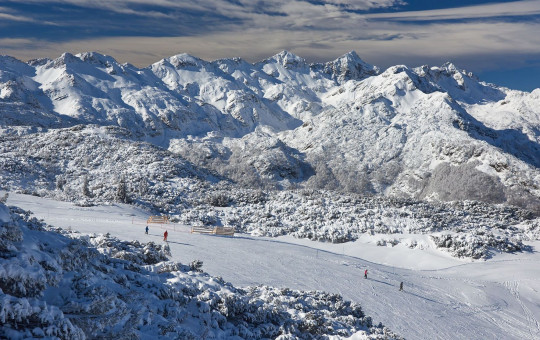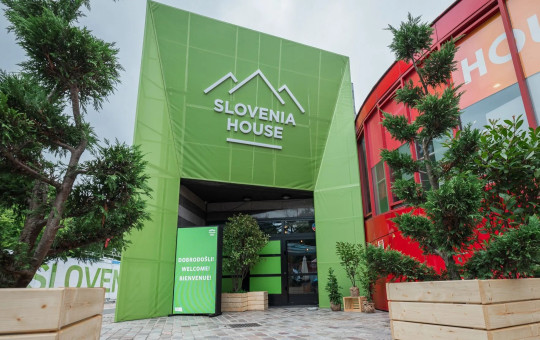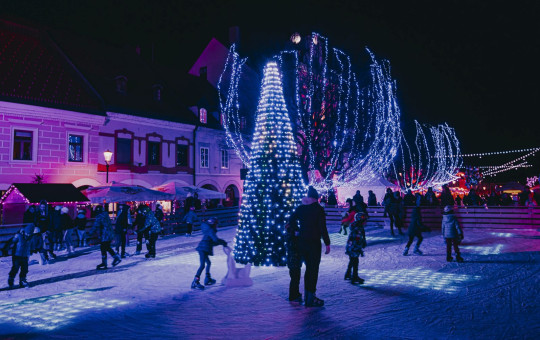Date: 7. December 2023
Time to read: 5 min
It is important to go into the mountains in winter responsibly, to gradually gain experience and to make the right decisions to ensure the highest possible level of safety, warns the Slovenian Mountaineering Association. Winter visits to the mountains are characterised by lower temperatures, shorter days, closed mountain huts, specific snow conditions and often strong winds, so going to the mountains in winter requires careful planning, obtaining information from the terrain, taking into account personal experience, appropriate equipment and knowledge of its use.
Winter equipment
To visit the mountains in winter, you need full winter gear - an ice axe, snowshoes and a helmet, and an avalanche triple when you visit the high mountains. Before each tour, you should check the condition of your equipment, the snow conditions in the area you are visiting and the openness of the mountain huts. In addition to the technical equipment, winter hiking in the mountains requires all the same equipment as for mountain hiking in summer, terrestrial conditions, plus good winter mountaineering boots, gaiters to prevent snow from getting into the boots, good quality clothing that protects against wind, cold and moisture, and has good insulating properties. Protection from the strong sun is essential, as well as spare clothing and the fact that the days are shorter in winter and most mountain huts are closed, which means we need more warm liquids and food in our rucksacks. Don't forget a map, a head torch and a phone with full batteries, a first aid kit and an alufol or a large black bag to protect against hypothermia.
-
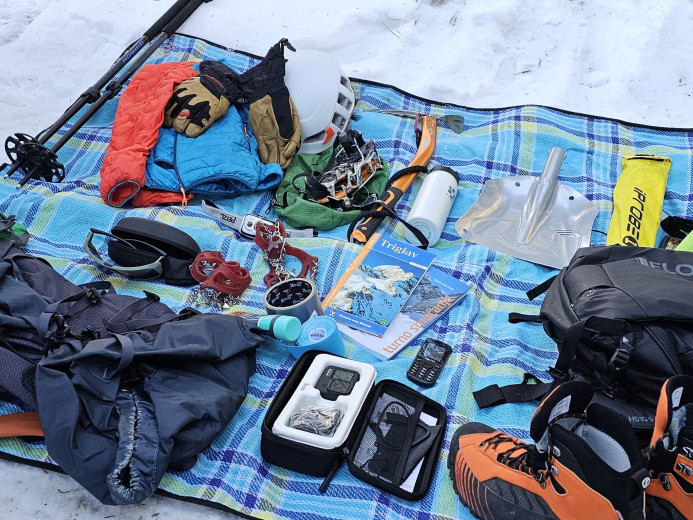 It is important to be able to assess the terrain, read avalanche forecasts, have the right equipment and know how to use it to prevent an avalanche - and if one does happen, we only have 15 minutes to find and dig out our fallen friend. Photo: Manca Ogrin/PZS
It is important to be able to assess the terrain, read avalanche forecasts, have the right equipment and know how to use it to prevent an avalanche - and if one does happen, we only have 15 minutes to find and dig out our fallen friend. Photo: Manca Ogrin/PZS
-
Anyone who finds themselves in the mountains in winter should be able to do the two-way avalanche beacon test, finding a person trapped by an avalanche beacon and digging them out. Photo: Barbara Gradič Oset/PZS
-
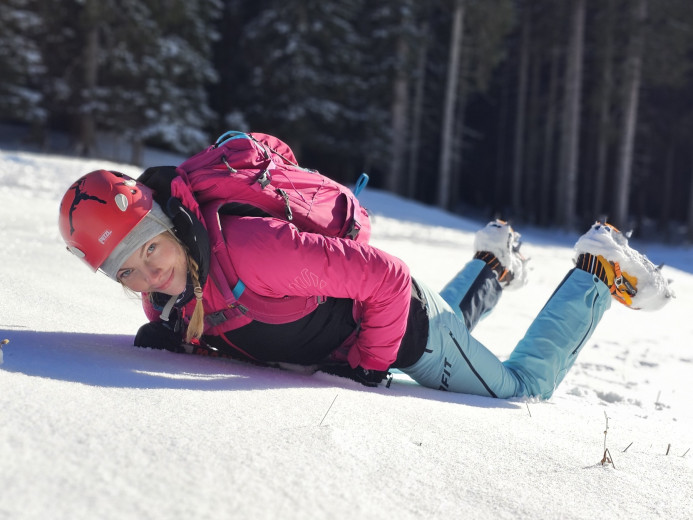 Klara Kavčič from the PZS Youth Commission is demonstrating stopping with an ice axe. Photo: Manca Ogrin/PZS
Klara Kavčič from the PZS Youth Commission is demonstrating stopping with an ice axe. Photo: Manca Ogrin/PZS
Never too much knowledge and experience
The snow-capped mountains are attracting more and more visitors, from mountaineers and climbers to back-country skiers. Equipment is more readily available, as is information, but to visit the mountains safely, we need a lot of knowledge and experience.
"Even in winter, there are more and more beginners in the mountains, and we recommend that they take appropriate courses from competent people and only go to the mountains with properly trained guides. The new and up-to-date manual by Tonet Golnar, "Touring Skiing", or other relevant professional literature, is also a good introduction to touring skiing. But the key is the responsibility of each individual. This includes owning the right equipment, knowing how to use it and being qualified for the tours you choose. It is important to gain experience gradually, always starting with qualified instructors or guides, constantly upgrading knowledge, and finally making the right decisions to ensure the greatest possible degree of safety," stressed Damjan Omerzu, Secretary General of the PZS, adding: "Let's remember, there is nothing wrong with deciding at some point that it is no longer safe to go on, turning around and returning to the valley. In doing so, we even show a greater degree of maturity, experience and personal responsibility."
-
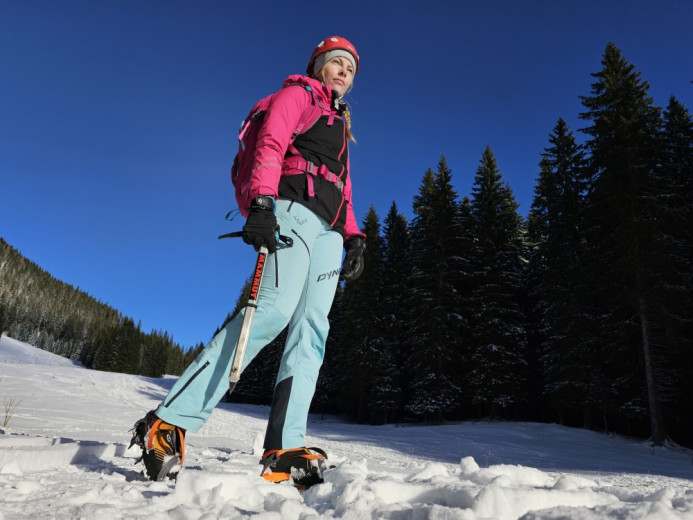 But the key is the responsibility of each individual. This includes having the right equipment, knowing how to use it and being qualified for the selected tours. Photo: Manca Ogrin/PZS
But the key is the responsibility of each individual. This includes having the right equipment, knowing how to use it and being qualified for the selected tours. Photo: Manca Ogrin/PZS
-
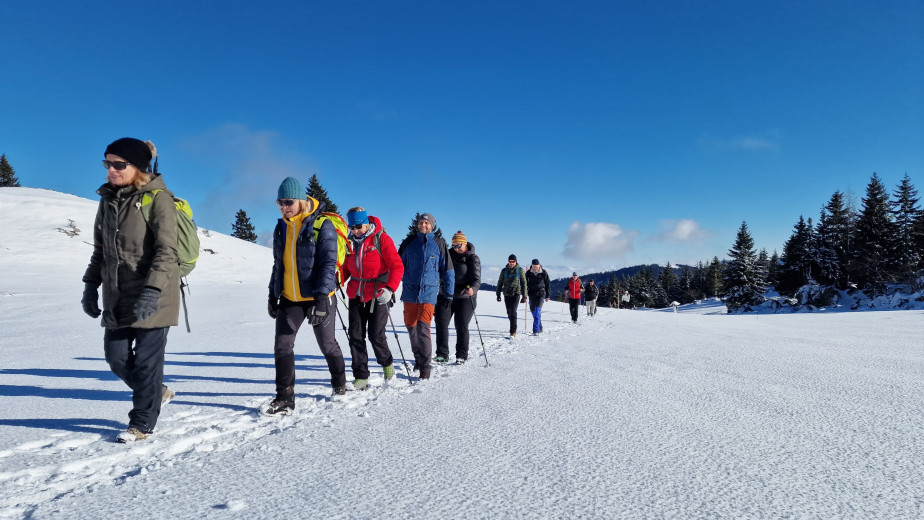 The snow-capped mountains are attracting more and more visitors, from mountaineers and climbers to back-country skiers. Photo: Manca Ogrin/PZS
The snow-capped mountains are attracting more and more visitors, from mountaineers and climbers to back-country skiers. Photo: Manca Ogrin/PZS
-
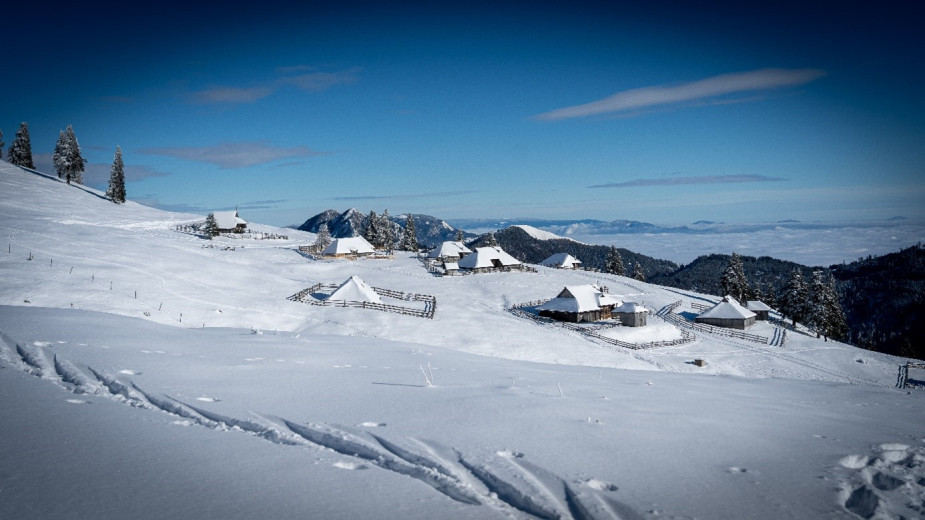 If anything, in the mountains, an individual can realise relatively quickly that effort, work or even toil can be richly rewarded. Photo: Peter Vrčkovnik
If anything, in the mountains, an individual can realise relatively quickly that effort, work or even toil can be richly rewarded. Photo: Peter Vrčkovnik
International Mountain Day
In 2003, the United Nations General Assembly declared 11 December International Mountain Day and it has been celebrated around the world ever since. Every year, the Slovenian Mountaineering Association prepares a message to mark the day, the theme of which this year is restoring mountain ecosystems. This year, Slovenia will also focus on the theme of the campaign "Read the Mountains". The author of this year's message is Martin Šolar, Vice President of PZS.
As much as a quarter of the planet is covered by mountains, which are extremely important for many plant and animal biotopes. They also provide habitat for humans, a source of (drinking) water and other natural resources, as well as a place for agriculture, tourism and other economic activities. Man has been going to the mountains for various motives for millennia. By the time of the twenty-first century, man's presence in the mountains has reached the point where his presence there is in many places harmful. In addition to the wider systemic problem of global warming and the consequences of its impact on the mountain world, where not much can actually be done locally. Finding the right balance between the many interests of modern man and the conservation of mountain nature will become an increasing challenge.



